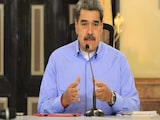Bangalore, Mumbai:
Following the recent cure of a nine-year-old Thalassemic child in Chennai with stem cells transplanted from her newborn brother, the concept of stem cell banking is in the news once again. But it would be good for expecting couples to understand, who really needs to sign up for stem cell banking.
While the idea of banking stem cells of their child is fast catching up with young couples even in some small towns, Anuradha and Dhimant opted to not to go for it. This Bangalore couple had been told that cord blood cells of a child banked at birth could be used years later for a sibling or anyone else, to treat certain critical illnesses requiring bone marrow transplant, of course at a cost.
"The costs were very high actually for what we thought was just an insurance, and the chances were pretty slim because we didn't have any history of any such disorders in the family," said Anuradha Parekh, mother of newborn.
Presently, private stem cell companies store the cord cells from the placenta of a newborn child at deep freeze temperatures for long term storage and possible use. The companies therefore factor in that cost.
"You have a one-time processing fee, which takes care of the entire processing of the cord blood - separation of stem cells, harvesting of those cells and then finally cryo-preserving. It also includes the costs of the tests done on the mother's blood for infections, said Vinay Kutrela, Life Cell stem banking company.
But what is worrying is the pressure that not-so-affluent parents go through, thanks to lack of awareness as well as aggressive marketing by private companies.
"I tell my patients to look at the pros and cons and then take a decision because they have to spend the money. Most companies take 70,000 to store the cells for 21 years. Some are accredited companies," said Dr Kiran Coelho, Gynecologist, Mumbai.
"If they are doing it for fear that they may use it in future, chances are extremely unlikely that they will ever use it and spending that money may not be useful. But if they have got surplus money, then there is a facility available," said Dr Ashish Dikshit, stem cell expert, Manipal hospital, Bangalore.
While the idea of banking stem cells of their child is fast catching up with young couples even in some small towns, Anuradha and Dhimant opted to not to go for it. This Bangalore couple had been told that cord blood cells of a child banked at birth could be used years later for a sibling or anyone else, to treat certain critical illnesses requiring bone marrow transplant, of course at a cost.
"The costs were very high actually for what we thought was just an insurance, and the chances were pretty slim because we didn't have any history of any such disorders in the family," said Anuradha Parekh, mother of newborn.
Presently, private stem cell companies store the cord cells from the placenta of a newborn child at deep freeze temperatures for long term storage and possible use. The companies therefore factor in that cost.
"You have a one-time processing fee, which takes care of the entire processing of the cord blood - separation of stem cells, harvesting of those cells and then finally cryo-preserving. It also includes the costs of the tests done on the mother's blood for infections, said Vinay Kutrela, Life Cell stem banking company.
But what is worrying is the pressure that not-so-affluent parents go through, thanks to lack of awareness as well as aggressive marketing by private companies.
"I tell my patients to look at the pros and cons and then take a decision because they have to spend the money. Most companies take 70,000 to store the cells for 21 years. Some are accredited companies," said Dr Kiran Coelho, Gynecologist, Mumbai.
"If they are doing it for fear that they may use it in future, chances are extremely unlikely that they will ever use it and spending that money may not be useful. But if they have got surplus money, then there is a facility available," said Dr Ashish Dikshit, stem cell expert, Manipal hospital, Bangalore.















